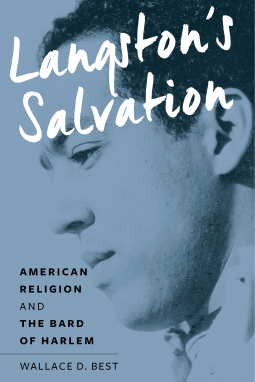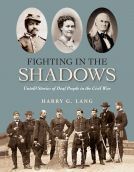
Langston's Salvation
American Religion and the Bard of Harlem
by Wallace D. Best
This title was previously available on NetGalley and is now archived.
Send NetGalley books directly to your Kindle or Kindle app
1
To read on a Kindle or Kindle app, please add kindle@netgalley.com as an approved email address to receive files in your Amazon account. Click here for step-by-step instructions.
2
Also find your Kindle email address within your Amazon account, and enter it here.
Pub Date Nov 07 2017 | Archive Date Nov 21 2017
Description
Winner of the 2018 Award for Excellence in the Study of Religion in Textual Studies, presented by the American Academy of Religion
2018 Outstanding Academic Title, given by Choice Magazine
A new perspective on the role of religion in the work of Langston Hughes
Langston's Salvation offers a fascinating exploration into the religious thought of Langston Hughes. Known for his poetry, plays, and social activism, the importance of religion in Hughes’ work has historically been ignored or dismissed. This book puts this aspect of Hughes work front and center, placing it into the wider context of twentieth-century American and African American religious cultures. Best brings to life the religious orientation of Hughes work, illuminating how this powerful figure helped to expand the definition of African American religion during this time.
Best argues that contrary to popular perception, Hughes was neither an avowed atheist nor unconcerned with religious matters. He demonstrates that Hughes’ religious writing helps to situate him and other black writers as important participants in a broader national discussion about race and religion in America.
Through a rigorous analysis that includes attention to Hughes’s unpublished religious poems, Langston’s Salvation reveals new insights into Hughes’s body of work, and demonstrates that while Hughes is seen as one of the most important voices of the Harlem Renaissance, his writing also needs to be understood within the context of twentieth-century American religious liberalism and of the larger modernist movement. Combining historical and literary analyses with biographical explorations of Langston Hughes as a writer and individual, Langston’s Salvation opens a space to read Langston Hughes’ writing religiously, in order to fully understand the writer and the world he inhabited.
Available Editions
| EDITION | Other Format |
| ISBN | 9781479834891 |
| PRICE | $89.00 (USD) |
| PAGES | 320 |
Featured Reviews
 Joseph S, Reviewer
Joseph S, Reviewer
Langston's Salvation: American Religion and the Bard of Harlem is an examination of Hughes's work from a political, religious, and social perspective. Best is a professor of Religion and African American Studies, Princeton University. He specializes in 20th century African American religious history. His research and teaching focus on the areas of African American religion, religion and literature, Global Pentecostalism, and gender and sexuality. He has held fellowships at Princeton’s Center for the Study of Religion and the W. E. B. Du Bois Institute at Harvard University.
As a man, in America, Hughes had four things against him -- He was black, and accused of being an atheist, a homosexual, and a communist. As an African American his poetry, especially the earlier work, was written in the contemporary African-American language complete with the slang bringing criticism for its unpolished uneducated appearance. Atheism was closely tied to his work "Goodbye Jesus." Best devotes a great deal of time discussing this poem, its meaning, and reviews.
Hughes' supposed homosexuality, mentioned but not discussed deeply in this book, is strongest tied to his writings. Hughes writes several of his poems as a convincing female. This may not be an indication of anything today, but during his lifetime it made a convincing suggestion. Accusations of being a communist are tied, and discussed in this book, to Hughes' trip to the Soviet Union for production of a film. He also appeared before McCarthy on the Permanent Subcommittee on Investigations. The treatment of blacks and darker skinned peoples in the USSR was a refreshing change from the US. In the US, Hughes lost his dorm room at Columbia because the admissions department thought he was Hispanic. His application was sent from Mexico where his father lived.
Best is a religious scholar and also teaches African-American studies. He examines Hughes religious upbringing, mostly from his aunt in Kansas. He visited Catholic churches in Mexico and attended services. In Harlem, he visited and wrote about the store front churches. In his writing, particularly in the plays Black Nativity and Tambourines of Glory, center on African- American religion. I, however, was not convinced that his interests in religion were totally spiritual. Church architecture, especially old Catholic churches are interesting whether or not one is religious and the same can be said of the ceremony. Hughes, too, makes no overt attempt to convert or go to other Catholic churches. Tambourines of Glory reflects the African-American churches in Harlem. Here the draw could have easily have been cultural instead of purely religious. Hughes seemed to write more from a cultural perspective than a religious one. In my take of Best's research, I see culture and racial politics as the subject and religion serving as the background.
Best presents a well documented and informative study of Lanston Hughes' rather extraordinary life. Although religion does play a key role, one does question its role in Hughes writing. While I may not always agree with Best's assessment and explanations, he does provide thinking points and a wealth of information on Hughes and African-American culture of the period. Langston's Salvation is well worth reading for those interested in Langston Hughes or Africa-American culture in Harlem as well as America in general.







